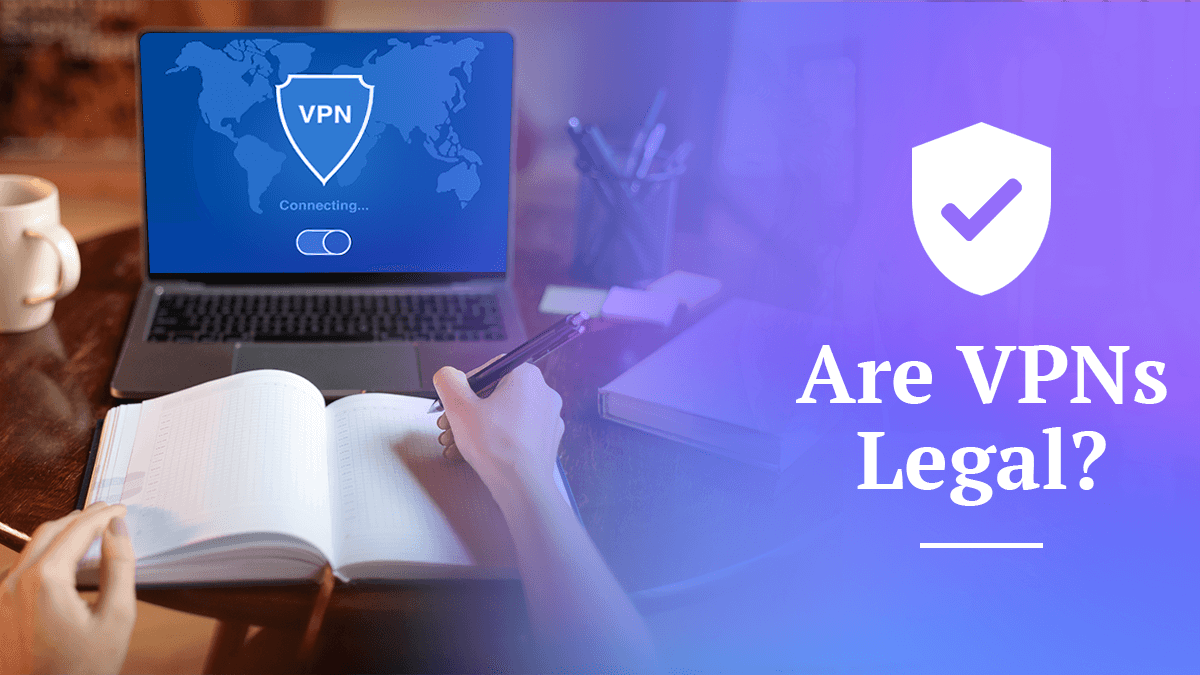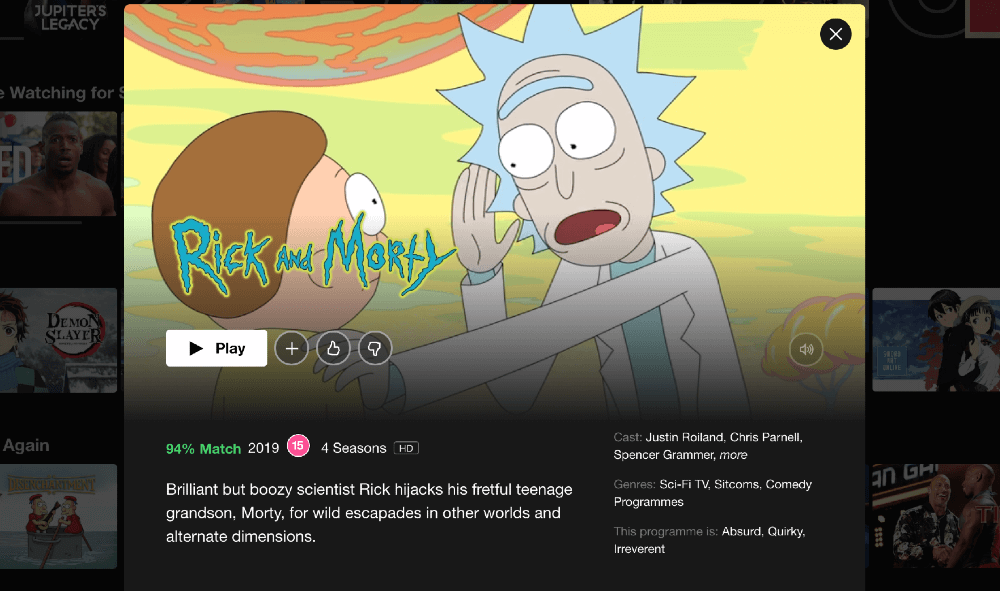
Are VPNs Legal in 2025? It Depends on Where You Live
Quick Answer: Are VPNs legal?
VPNs are legal in almost every country in the world, but a few nations restrict their use. A feature-rich VPN like NordVPN has security features that let you bypass blanket VPN bans.
You can try NordVPN for free with its 30-day money-back guarantee.
Virtual private networks are used for many legitimate reasons. However, misconceptions about VPN usage can make it seem like users are sneaking around wearing Harry Potter’s Cloak of Invisibility while delving into illegal activities. With that in mind, it’s no wonder you hear yourself asking “are VPNs legal?”
Well, before the cold sweat kicks in, yes, VPNs are legal to use, so long as you’re not using one for illegal activities — at least in the U.S. The legality of VPNs can differ in other countries, though, due to censorship laws and other government restrictions.
In this article, I’ll talk about the legality of using a VPN, the circumstances that would make using a VPN illegal and go over the countries where VPNs are restricted or banned. I’ll also explain the reasons why you should use a VPN and give you some recommendations.
- Safest to use
Can you get in trouble for using a VPN?
You won’t get into trouble for using a VPN in the U.S., so long as you’re not using it for illegal activity. However, while VPNs are legal to use in the U.S., other countries have different rules for VPN usage and you could get into trouble if you’re found using one in places like China, Russia and the United Arab Emirates (UAE), to name but a few. Be sure to check on a country’s stance on VPN usage before you travel there.Is using a VPN to access Netflix illegal?
Using a VPN to access Netflix is not illegal. However, using a VPN to access Netflix content from another country goes against Netflix’s terms of service and your account could be terminated if you’re caught. The likelihood of that happening is low, though.Can I connect to a VPN server in a country where the use of VPNs is restricted?
You can connect to a VPN server in a country where VPN usage is restricted so long as the VPN provider has servers (physical or virtual) located there. Make sure you are using a trusted VPN, though, to make sure you’re protected and hidden.
Are VPNs Legal to Use in the U.S.?
Yes, VPNs are perfectly legal to use in the U.S. For the most part, a virtual private network is used as a privacy tool, and you have the right to privacy. One of the reasons I use a VPN is to keep my personal and sensitive information safe from prying eyes.
I use a VPN to get around geoblocks, as well. That’s also legal, but it does go against the terms of service for most streaming services and they could potentially terminate my account.
The main point to keep in mind is that provided you’re not using a VPN to do anything that’s illegal in itself, there’s no issue with using a VPN in the U.S.
Is It Ever Against the Law to Use a VPN in the U.S.?
Although VPN usage is not against the law in the U.S., using one to commit illegal activities is. That’s because those activities are illegal, period. All you’re doing is hiding behind the VPN to try and get away with it. For example, think about if you were to walk into a theater and watch a movie without paying. Well, it’s as illegal online as in person, whether you use a VPN or not.
So, what types of online activities am I talking about? Well, anything such as downloading or selling copyrighted material, cyberstalking, cyberbullying, hacking and some activities on the dark web are illegal, to name but a few. If it’s illegal offline, it’s most likely illegal online, and using a VPN isn’t going to lessen that.
In fact, a VPN’s terms will usually explain that you’re responsible for any illegal activities you take part in and it’ll also usually state that any suspicious, illegal or fraudulent activity will be reported to the authorities.
Now, if you’re using a decent VPN that doesn’t keep a log of your online activity, there won’t be anything to hand over to law enforcement. I’m in no way condoning any illegal activities online; I’m just saying that if a VPN does what it says on the tin, so to speak, you’re not likely to get caught.
Where Is VPN Usage Restricted or Illegal?
Like I said earlier, not every country feels the same about virtual private networks. In some countries, VPNs are monitored and restricted, and some make VPNs completely illegal. Those countries usually have a reputation for restricting citizens’ rights, though, and because VPN usage leads to online freedom, the governments don’t want people to use them.
Many countries completely ban VPNs, such as North Korea — which restricts internet access altogether — Russia, Belarus, Turkmenistan, Iraq, Turkey and Oman. The governments of these countries are known to monitor citizens’ activities and try to control what they can or can’t see online. Allowing citizens to use a VPN would mean a loss of that control.
VPNs are seen as dangerous to totalitarian governments. Leaders want to control what their citizens know. Access to certain content, such as social media and news or entertainment from Western countries, is restricted, and because VPNs can bypass the restrictions, they end up being restricted, too.
Uganda also tries to block VPNs, but for a different reason. It’s so that its citizens can’t dodge Uganda’s social media tax. The Ugandan government instructs ISPs to block VPN users, but it doesn’t have the means to fully enforce the blocks, so citizens continue to use VPNs anyway.
Are VPN Services Banned in China?
Interestingly, VPNs aren’t outright banned in China. That’s surprising, too, considering China’s internet restrictions are more sophisticated than any other in the world. China pretty much has its own internet and internet censorship is rife. Users can only see what the Chinese government wants them to.
Instead of completely banning VPNs to ensure it stays that way, though, China regulates VPN usage. The Chinese government only allows the use of government-approved VPNs. The problem with those VPN providers is that the government can easily snoop on your activities, and then they know what sites and services you’ve been accessing.
Chinese corporations often acquire licenses to use VPNs in order to access international websites for business purposes. That license doesn’t cover users like you and me, though.
For regular citizens, the use of a VPN — and an unapproved VPN provider — to get around China’s restrictions is illegal and could result in being fined if caught. That said, many Chinese citizens put the risks aside and do exactly that. Learn more in the guide, are VPNs legal in China?
Is VPN Usage Legal in India?
You may have heard about India’s 2022 VPN regulation. This law requires all VPNs to keep logs of user activities and provide them to law enforcement upon request. It will stay in effect for at least five years.
In spite of this legislation — and despite a committee of India’s parliament urging the government to ban VPNs outright — it remains legal to use a VPN in India. But if you use a physical server based in India, your online activity may not be private. Not only will the government be able to see it, but if they mishandle your information, it’ll be visible to hackers.
Many VPN providers have pulled their servers from India altogether in the wake of the new law, replacing them with virtual servers for those who still want to spoof Indian locations. These servers are located outside India but set up to use Indian geographical signatures.
Our guide “Are VPNs Legal in India?” has more information.
Why Should I Use a VPN?
There are many legitimate reasons why you should use a VPN. The VPN benefits guide has comprehensively explained the reasons you a VPN should be part of your software stack. Let me summarize the guide for you.
Security with strong encryption is one of the most prevalent reasons. For instance, if I connect to public WiFi without a VPN, I have no idea how secure that connection is or who else is connected to it. Weak digital security leaves you open to attack and it only takes one malicious hacker to turn your online world upside down.
On top of that, using an encrypted connection helps stop internet service providers (ISPs), the government and anyone else from tracking you or spying on you and your data. Staying anonymous is important to many people, and a VPN will hide your true IP address and location. That means you can browse the internet privately. No one will know your true identity and nothing can be traced back to you.
Being able to switch to servers in other countries also means you could benefit from different prices or rates on some services and products. For example, flight costs can differ widely in different countries. You could get the exact same flight a lot cheaper by booking it from another country. The same goes for online stores, so it pays to look around.
Lastly, getting around geoblocks is a big hit with VPN services. Some websites and entertainment services are only available in certain countries, so changing your server means you can access them.
It also works with the content that services offer. Take Netflix, for example. It’s available in 190 countries, and each country has its own library. Some TV shows and movies are only available in certain Netflix libraries due to copyright laws. So, if I want to watch Rick and Morty, I have to use one of the best VPNs for Netflix to connect to a UK server to watch it.

Which VPNs Are Safe to Use?
If I search for a VPN right now on Google or on an app store, I can guarantee it will return hundreds of results. The problem is, which one do you choose? You need to make sure you select a trusted service; otherwise, there’s a good chance the VPN won’t be as secure as it claims.
For starters, it’s best to avoid free VPN services. OK, so I can’t be sure that every free VPN service is bad, but the reality is that most of them are. Such services can do more harm than good. They can be riddled with malicious software and do the complete opposite of protecting you. Some free VPNs have even sold user data to third-party companies, and others don’t have the security they claim to.
Even if you find a good free VPN, you’re likely to end up with limited servers, slow speeds and a data cap — none of which are good, especially when it comes to streaming.
I keep to my favorite VPN, NordVPN, because I know that it keeps my connection secure and honors my online privacy with a strict no-logs policy. I can get into Netflix and other streaming services easily, and its fast speeds and unlimited bandwidth mean my streaming time isn’t interrupted. Learn more in the full NordVPN review..
ExpressVPN is a close second to NordVPN — it has the same reliable servers, but it’s a lot more expensive. Learn more in the ExpressVPN review.
Conclusion
So, that’s my answer to the question “are VPNs legal?” Using a VPN may sound a little shady at times, but it’s perfectly legal in the U.S. Of course, using a VPN to carry out online activities that are already against the law isn’t right and that’s the point where it does become illegal.
For everything else, though — such as staying secure and anonymous, taking advantage of lower costs in other countries and getting around geoblocks — you’re in line with the law. Just keep in mind that certain actions could go against some companies’ terms of service and your account could be terminated. When you choose a VPN, be sure that it’s a trusted one, like NordVPN — the top best VPN.
Do you already use a VPN? If you do, which VPN service do you use? What’s your main reason for using a VPN? Let us know in the comment section. Thank you for reading.

Leave a Reply